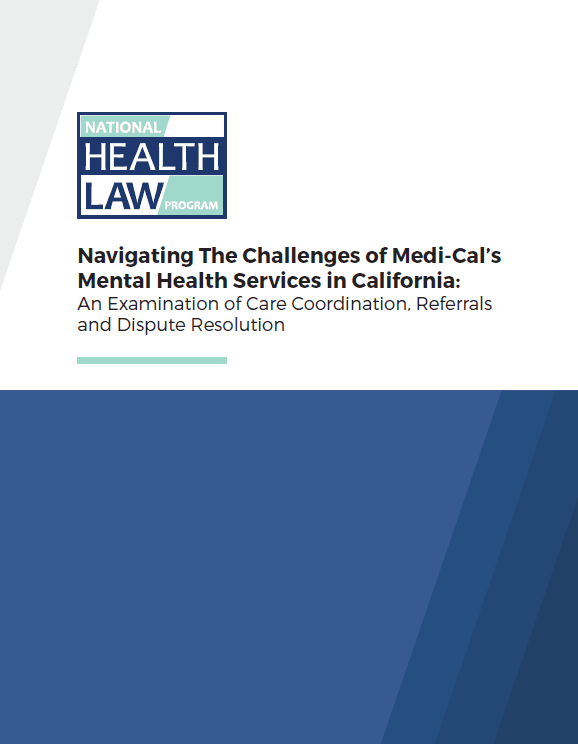

Executive Summary
Medi-Cal plays a crucial role in providing mental health services in California. In 2015, over 600,000 Californians – approximately two percent of the State’s population – received mental health services paid for by Medi-Cal. While Medi-Cal plays an important role in delivering necessary mental health services to Californians, many more go without the treatment they need. They are hampered by a fragmented system in which two entities are responsible for delivering mental health services to enrollees: a Medi-Cal Health Plan (MCP) is responsible for providing non-specialty mental health services (non-SMHS), and a County Mental Health Plan (MHP) isresponsible for providing specialty mental health services (SMHS). This divided mental health delivery system toooften leads to enrollee confusion and challenges in obtaining services, including information about their right to mental health services or how they can resolve disputes about those services. As a result, enrollees do not receive well-coordinated care to treat their mental health conditions. Until a more integrated approach to delivering mental health services exists in California, these problems will certainly continue.
This report aims to provide insight into Medi-Cal’s fragmented mental health system, and make recommendations for improving access by providing more coordinated care and referrals between MCPs and MHPs, and ensuring that enrollees receive accurate information about their rights that allows them to dispute decisions about their care when they disagree. It begins by providing an overview of the existing system and the rules that govern it. It then provides findings and recommendations on improving care coordination and referrals between MCPs and MHPs, and ensuring that enrollees receive the required information they need to resolve disputes.